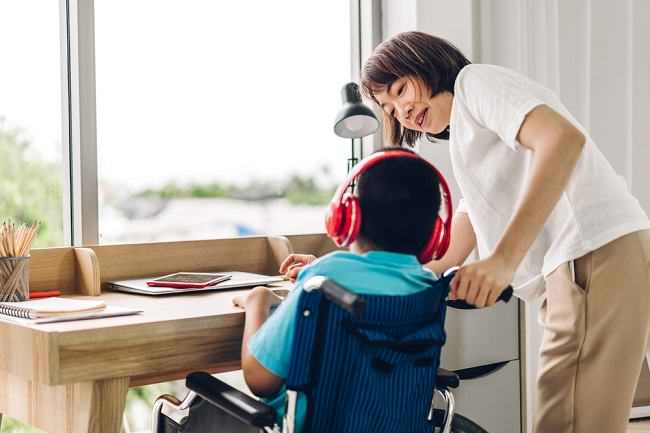Teaching manners to children is no less important than academic lessons, you know, Bun. Good manners in children should be taught as early as possible so that it can become a habit that is done automatically, both at home and outside the home.
Courtesy is a form of our awareness or sensitivity to the feelings of others. Courtesy is not an ability or talent that children are born with, but something that parents need to teach and instill.

Courtesy is also not a written rule, but is indispensable in social and community relations. This courtesy will be a provision for children, so that children are able to live side by side with other people in the future.
How to Teach Politeness to Children from an Early Age
Children can be taught about the concept and importance of manners from an early age, to be precise from the age of 1.5 years. At this age, children are generally able to understand that other people also have feelings like he feels.
The following are some ways to teach children manners that you can start instilling in your little one from an early age:
1. Teach basic etiquette
Mothers can begin to teach manners to your little one with basic etiquette, namely saying the words 'please', 'thank you', and 'sorry' every time he asks for and accepts help or makes a mistake.
Mothers can start teaching these three important words since the little one has started talking. Your child may take some time to automatically remember and use these three words. So, don't be bored to remind your little one, OK, Bun.
2. Teach the concept of sharing
At the age of 2 years, children usually have started to understand the concept of sharing, although not necessarily do it with pleasure. Mothers can teach your little one by giving him two similar toys, then asking him to share one of the toys with his friends.
3. Teach etiquette at the dinner table
At the age of 3-4 years, children can eat at the table with a spoon and fork, and can already wipe his mouth with a tissue.
At this age, you can start teaching etiquette at the dinner table, starting with the simplest ways such as not throwing or throwing food, or sitting quietly while eating and drinking.
4. Teach visiting etiquette
Visiting other people's homes is a good opportunity to teach children manners.
Remind your little one to always knock on the door and say hello before entering someone else's house, for example saying 'hello' or 'see you later'. Also teach your little one to answer questions politely when asked things like what his name is, how old he is, or what he wants to drink.
5. Teach not to comment on other people's physique
This is also a form of courtesy that needs to be taught to children. Mothers need to teach their little ones not to comment on someone's physical condition, except for the good ones. He also needs to be taught not to always express negative opinions, especially if not asked, because it may hurt other people's feelings.
In addition, teach your little one not to point and stare at other people sharply, especially people with certain physical limitations. Also remind your little one not to mock or laugh at someone.
Teach him to try to think about the person's feelings. You can tell that there are people who need special ways to communicate, for example the deaf who use sign language. In addition to teaching manners, it also helps teach children to empathize.
After Mother knows how to teach manners to children as above, what is no less important is to be a good example for her.
If your little one is used to seeing people in his house being polite, then he will automatically grow up to be a polite child into adulthood. In addition, don't forget to praise your little one if he is being polite, right, Bun.
You need to remember too, so that your child can learn manners, he needs to feel comfortable with eating, drinking, and getting enough rest. So, if your little one is disobedient, you need to find out if he may be hungry, sleepy, or tired.
If you have problems teaching manners to children or if your little one is very difficult to teach manners, you can consult a psychologist.









